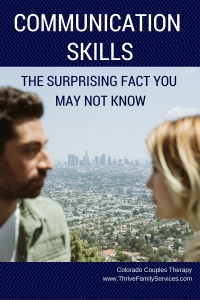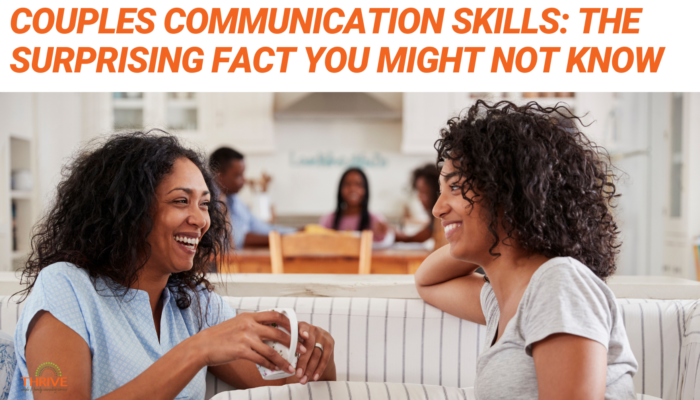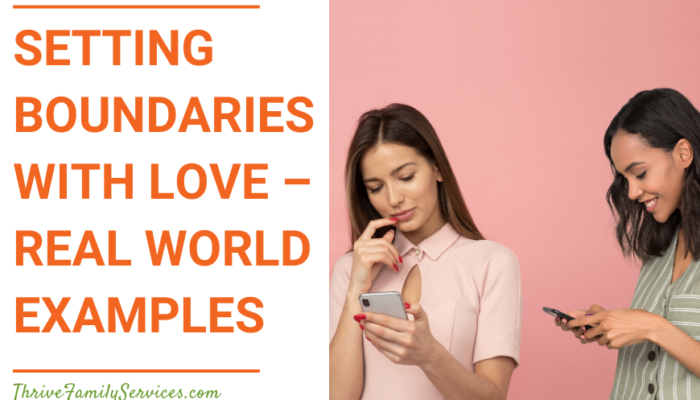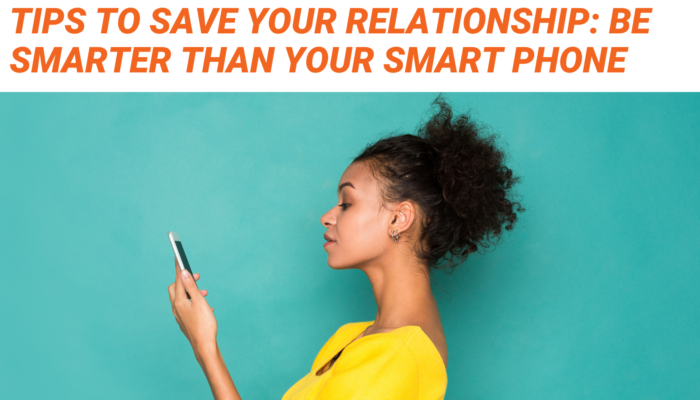Can you relate to any of these problems with communication?
“He just doesn’t listen to me.” “She misinterprets everything I say.” “I try to bring something up and suddenly, the conversation snowballs and we’re in a huge fight.” “The argument started over something trivial, but she ended up threatening divorce.” “He blames me for problems in the relationship, but I’ve been trying so hard to talk to him.”Communication with the person you love can be hard.
 One of the most common reasons couples seek couples counseling is to improve their communications skills. When we’re feeling distant, there’s been a big argument, or when we try to talk about improving our relationship, communication can often break down. If you’re having difficulty communicating with the person you love, it can be really helpful to seek support from a qualified couples counselor. However, the most effective “communication skills” may just come in a package that surprises you.
One of the most common reasons couples seek couples counseling is to improve their communications skills. When we’re feeling distant, there’s been a big argument, or when we try to talk about improving our relationship, communication can often break down. If you’re having difficulty communicating with the person you love, it can be really helpful to seek support from a qualified couples counselor. However, the most effective “communication skills” may just come in a package that surprises you.
Communication Skills–what are they?
Communication skills are ways that we can talk to our partner or others that hopefully is not inflammatory and will get our point across. If you want to try learning communication skills, I say, “Go for it!” Just don’t expect it to improve your relationship over the long haul. If we understand that learning communication skills won’t necessary stop us from fighting, help us feel closer, or heal hurts that have happened in the relationship, it isn’t a bad thing to learn about:
Using “I” statements
“I feel” followed by one of your feelings (sad, lonely, etc), vs “I feel that you are a jerk.”
The difference between feelings and thoughts, and that sharing feelings generally goes better
“I feel sad.” Vs “I feel like you aren’t paying attention to me.”
Reflective Listening
One person speaks at a time, the other listens and repeats back to the speaker so hopefully the speaker feels heard. Then, you swap.
Using calm tone of voice, eye contact, perhaps even physical touch
Using your calm voice rather than your angry voice, making eye contact instead of looking away, touching your partner gently and lovingly.
Do couples really use this stuff?
Most of us naturally use good communication skills with people we meet going through our day. We are smart enough to know how to use a friendly tone of voice and we naturally prevent and avoid many conflicts with others at work, school and with friends.
“But why is it so much harder in my romantic relationship?”
Because relationships with strangers, coworkers and casual friends carry only a fraction of the importance to us as our primary love relationships.
Couples can practice using communications skills with one another when they feel close, secure and generally pretty happy in their relationship. With some coaching and support, they may even be able to work through a disagreement pretty well using communications skills.
Research shows, however, that those skills don’t last. Eventually, sooner or later, we lapse back into the patterns I described at the beginning of the post, most commonly in the middle of a fight.
I’ve interviewed Marta Kem, Denver Marriage and Family Therapist, my colleague and an affiliate therapist of Thrive Family Services. She explains why teaching Communication Skills to couples doesn’t really work, and what an Emotionally Focused Couple Therapist would help you learn instead to truly get at the root of the distress in your relationship for a closeness and happiness that will last.
In summary, most people struggle to access those communication skills in the moments where they need them most. The research shows that there is no evidence that couples taught communications skills actually use them in most of their interactions. If you’re interested, read more from relationship expert and Emotionally Focused Couples Therapy founder, Dr. Sue Johnson, about why communications skills are NOT the key to a happy relationship.
So, what can we do to really improve our communication?
Emotionally Focused Couples Therapy is a research-based method of helping couples get to the root of the issues, making changes that will last long after your therapy has ended, and help you even in those moments when you’re having a huge fight or feel really disconnected.
Call Thrive Couples Counseling at 303-513-8975 for Greenwood Village, Denver area couples counseling. Or, view the calendar and schedule an appointment now Schedule Appointment




